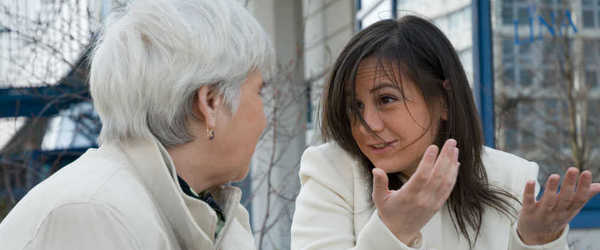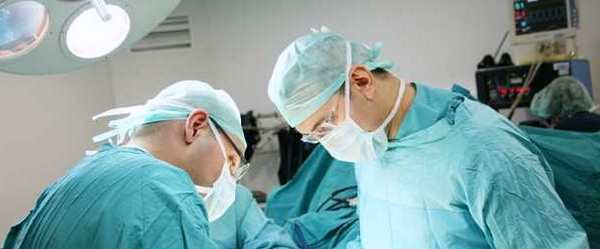
The vast majority of those retiring to the Philippines are older and some are on regular medication due to health problems. It is not an issue to take lightly if you are already in this situation. For those who are younger and for those who are older but in excellent health, the question still burns. “If I have a serious illness in the Philippines or if I am involved in a serious accident, will I receive excellent medical treatment?”
Part of the answer to that question depends heavily on where one lives in the Philippines. If one plans on living in the countryside, they should know that the medical facilities there are usually limited to a public hospital or even only a clinic staffed by a Registered Nurse. If the countryside area of residence is within 15-20 minutes to a midsize or large city, they will be in much better shape. The availability of an ambulance 24/7 also needs to be investigated because some small towns only have one ambulance and if it is already being used to take someone to the hospital, what will they do? Having a vehicle if one lives in the countryside is a necessity and having someone available who can drive to the nearest hospital on a moment’s notice is also a serious consideration.
One problem some run into is that their particular medication in their home country is not available here in the Philippines and they must switch to an alternative, which may or may not work out as well. Mercury Pharmacy has an elaborate website with lists of available medications here in the Philippines. Some expats work around this in conjunction with their personal doctors back home and have their relatives send their medications to them here in the Philippines. However, some States in the US have restrictions and some other countries may also have these restrictions.
Quality of Medical Treatment
As of this writing, I only know of four hospitals in the Philippines, which have been verified as holding accreditation by Joint Commission International, JCI. Three of those four hospitals are located in Metro Manila. Makati Medical Center, Medical City in Pasig City and St Luke’s Medical Center (SLMC) in Quezon City. The fourth JCI accredited hospital in the Philippines is Chong Hua Hospital in Cebu City. Those four hospitals are obviously considered as having the most modern medical equipment and the best medical staff, from top to bottom, in the entire Philippines. In fairness, I would not agree that those four hospitals have the only medical experts on staff or as being the only four hospitals with modern medical equipment in the entire Philippines.
Filipino medical staff, trained in the Philippines, work in hospitals around the world. When I worked in the Florida Mental Health system for 9 years, as a counselor, I worked with a number of Filipino psychiatrists, nurses and other medical support staff. I thought they were all excellent and I was not biased. They were all very professional and knowledgeable in their field of study.
If one feels they are not getting adequate medical treatment, there are various medical boards one can complain to, however, one must keep in mind that the Philippines is not the USA, UK, Canada, Australia, New Zealand and not any of the other more developed countries around the world. Things are done differently here and it takes patience in dealing with things that are not up to par. Even when it is difficult, keeping one’s cool and being nice always gets the best results.
Personal Experience
Since I have moved to the Philippines full time, I have met what seems like thousands of relatives! During the past four years, there have been illnesses within the family that required hospital confinement. On New Year’s Eve, 2009, my father in law had a stroke. Luckily for him, we had a family vehicle and we drove him straight to Adventist Hospital in Bacolod City, which was 45 km away. He received excellent treatment and with the Phil Health Insurance, his total out of pocket bill was less than P30,000 for being confined in the hospital for 6 days. He left the hospital without any signs of a stroke but he still requires regular check ups with his doctors and he is taking daily medication.
Two other relatives have been confined at Riverside Medical Center in Bacolod. One for a respiratory infection and one for dengue fever. Both received excellent treatment and both recovered well. Riverside is also a private hospital and Phil Health was the only insurance they held.
Our son has an excellent pediatrician, who is on the National Board of Pediatricians. My wife and I are both very well pleased with her treatment of our son and we will only have the very best for him!
An American friend had hip replacement surgery in Bacolod City several years ago. As far as I know, he still considers it successful. Another American friend decided to have his required delicate neck surgery done at Chong Hua Hospital in Cebu City. He raved about the treatment he received and he was well pleased with the hospital bill.
Since 1984, I have availed Alternative Medicine and I do not take Western style medications. I am blessed with excellent health! There are very professionally trained acupuncturists in the Bacolod City area, who are board certified, and for those who take Traditional Chinese Medicine, it is readily available in our area. Hua Kong Chinese Pharmacy has been open in the city since 1949. I received acupuncture treatments several times in Bacolod City and the acupuncturists were excellent. Before moving to the Philippines, I had acupuncture at the hands of doctors who were Taiwanese, Chinese and Indonesian. The two Filipino acupuncturists I utilized did as well, if not better, than the others in the past!

In Bacolod City, Riverside Medical Center, Adventist Hospital and Doctor’s Hosptial are the three private hospitals and all have excellent reputations. I would not have any qualms going to any of the three hospitals if I were in serious condition, when Alternative Medicine would be of no help.
Medical Insurance
Phil Health Insurance is less than $100 per year but they only pay 10%-20% of the bill and it varies according to the condition. Some hospitals in the Philippines accept foreign based health insurance, such as Blue Cross Blue Shield, but one must personally verify with the hospitals in the area they will be residing, as things differ in the Philippines very widely from location to location, even within the same city!
Pacific Prime is one international health insurance company that insures expats and their family members in the Philippines. Their basic premium for the family plan is about $3,000 USD per year.
Among local health insurance companies in the Philippines, other than Phil Health, one can check out Medicard (please do not confuse with US Medicare) and Caritas Health Shield. Those are all affordable health insurance plans.
While it is true that the medical care cost in the Philippines is much cheaper than the USA, if one does not have money to cover it and/or a decent insurance to help defray the cost, it can still be costly in an amount of several thousand dollars. There was one American in Bacolod City who was in ICU for 3 consecutive months last year, in a private hospital, and his bill was over $25,000 USD and this was without insurance of any type.
Living a healthy lifestyle can go a long way in defraying the cost of health care. Sadly, I have seen some retirees in the Philippines do the opposite and it took a toll on their health. In a hurry! You can have great fun here without trying to burn up your life in a few years. Very few of us retired to the Philippines are still 25! Take it easy, as you have plenty of time to enjoy the rest of your life in the Pearl of the Orient.



Thanks Gary, very nice article. Good information for me, I plan to retire in 3 years, God willing.
Thank you, Rick. I am happy you found the information in my article helpful. I don’t doubt that you are counting the days until you retire to the Philippines. I look forward to meeting you one day.
Take care,
~ Gary ~
Maybe I will swing by to visit you on one of my trips? My next trip I am thinking about going to Palawan. I have not been there yet. Looking at 1st going to Coron, maybe El Nino (I heard there is nothing must to see there) and I might as well go to the underground river as well. I will need to do some research on Palawan before I know for sure what all is worth seeing and doing there. I am thinking, I may spend most of my time on Palawan, I think I can handle 2.5 weeks on the island traveling, site seeing and scuba diving. I learned to not burn so much of my time actually traveling but going to fewer places and staying longer. Plus I will burn a few days in Manila and Butuan City, so that will about cover that trip. I may get to Coron and want to stay 2 weeks there alone. HAHAHA I will see once I get there at Coron.
Thanks very much for this article, Gary. This will help answer many questions expatriates (or future expatriates) have about the healthcare system in the Philippines. Americans know how convoluted our system is and having to learn a whole new one from scratch can be a daunting task. This article definitely goes a long way to setting the record straight.
One thing that would be very helpful in getting top drawer medical care in the Philippines is just to simply reach out to your network of friends and family and find out who the best doctors, nurses, hospitals, etc. are in your area. As far as I know, unlike in the States if you have an HMO, you can go to anyone you want. You might have to wait depending on the patient load of the doctor, but you still have the choice.
Just for kicks, I went to see a family dentist in Bacolod and was extremely happy to see how professional she was and the modern equipment they were using. The office was nowhere as slick looking as you’d find in the States, but the dentist was top notch.
Same thing with the doctor my in-laws go to; she’s highly professional, great bedside manner, asks lots of questions – and isn’t trying to push you out the door (like I experience in the States frequently). The prices for various services are, naturally, much better, as well.
In any case, it looks like you can get great care in the Philippines and Gary’s article has really helped put that into perspective. Thanks again for the article, Gary.
Thank you for your compliments, Ray. Very much appreciated.
Concerning the dental offices in Bacolod, they are all walk in and no one will experience being told their appointment is 2-3 months down the road, such as I experienced in Florida, USA. Dental work is very affordable here, even without insurance, however, dental insurance is available in our area.
Have a great day!
~ Gary ~
Gary,
You lined up the ducks. Let me do the easy thing and take a couple of pot shots on they fly-by
I approach the subject gingerly and verbosely because I want to be clearly understood and not seen as unnecessarily critical of health care in the Philippines.
When I first settled in the Philippines, and needed medical services for such things as wart removal, ear infections, skin problems, sprains, contusions and the like. I was well satisfied.
I found capable, adequate practitioners and institutions.
Later, when two cardiologists told me I had badly clogged arteries and needed stents and or possibly bypass surgery, I would have had surgery at the Philippine Heart Center in Manila, if not for the fact that to do so would have cost a minimum of P500,000, and because I had MEDICARE I could get the necessary surgery for virtually no cost in the U.S., so I went to the States, expecting the worst.
Had I chosen to go to the Heart Center, they, as discovered in the U.S., probably would have found out that I had been misdiagnosed and needed no more than a relatively non-invasive procedure to bring my heart beats back into accepted tolerance. I questioned my providers in the U.S. until they reached the point of exasperation and made notes in my records that I had absolutely no sign of clogged arteries. My point is two-fold for those in or coming to the Philippines:
First, for really serious stuff, even if you’re in Manila or Cebu, it’s best to go to one of the upscale hospitals for follow-on opinions. Since that incident, I pay better attention to the treatment I receive and the availability of quality health care. I have learned that, in the Philippines, knowledge and diagnostic equipment can be less than up-to-date.
Secondly, if you’re MEDICARE eligible, pay for PART B, even if you can’t use it in the Philippines. Medical care in the Philippines is relatively inexpensive. Most expats can and do self-insure for routine medical costs here in the Philippines. That method becomes problematic, however, when treatment will result in a $15-20,000 bill for surgery, medicine and in-patient recovery. I have no suggestions for those who don’t qualify for MEDICARE.
Renato
Renato,
I hear you and thanks for sharing your experience. All my personal experience with medical treatment in the Philippines has been with acupuncturists and hilots since I am a firm believer in alternative medicine. I am very well pleased with both in the Philippines and both fit my needs since I am in excellent health with only an occasional minor health discomfort.
The last time I recall going to a medical doctor in Florida, I was sent to a throat specialist in Jacksonville, Florida for what was initially diagnosed as a cyst in the back of my throat. As it turned out, it was only a piece of popcorn stuck in my tonsillar crypt! Easily removed while sitting in the doctors office and anesthesia was not needed, of course. It was less than a one minute procedure by a specialist!
As posted in my article, there are three excellent private medical facilities in Bacolod, where I live, and I am not nervous about any serious medical treatment that I should ever need, which could not be treated by an acupuncturist or hilot. Our son, my wife, friends and extended family members have been treated by traditional physicians over the past 4 years and I can see the positive results first hand.
Have a great day!
~ Gary ~
Very interesting. I am a Brit, planning to retire there later this year. I suffer from type 2 diabetes ans emphysema which I control with meds. I hopefully will reduce some of the symptoms with a healthier, less stressful existence. As a side issue, do I apply for an SRRV classic or SRRV smile?
Peter,
When you choose an area in the Philippines to retire, you will want to check the air quality. Many people in Metro Manila have respiratory problems and due to the poor air quality, Manila is not the place to be with such condition.
If you apply for the SRRV Smile, your deposit is locked in for as long as you are in the program. With the SRRV Classic, your deposit may be converted into investments.
I wish you all the best.
~ Gary ~
I agree, steer clear of Manila. The air quality is pretty ordinary at best, and can be shocking – as in terrible. Even Cebu City can often be smoggy. Bacolod, outside of the denser parts of the city during rush hours – is generally pretty good. As most expats live on the outskirts of the city, or the in adjacent places like Silay or Talisay….The air quality is fine. The only time it might be an issue is when they burn sugar cane in the dwindling number of fields. Then it is just which way the wind blows….
Speaking of type 2 diabetes….I have it too….but well controlled with minimal medication. This is second hand information – so don’t take it as gospel. But I have been told that many WESTERN diabetics improve their blood glucose control considerably after moving to the Philippines. Note I said Western, since diabetes is reaching epidemic levels amongst Filipinos…..Their diet isn’t the best, and the middle and upper class don’t exactly work themselves to exhaustion and burn up the calories – same as the rest of the world…..Why do Western diabetics improve their condition by moving to the Philippines? Well, for most – they do things like walk more, some take up hobbies like gardening, scuba or snorkelling, etc….they travel more – mostly within the country….they also have to endure the heat and humidity – which in itself is enough to cause some weight loss. And that is one important aspect. Want to drop glucose levels, as well as blood pressure? Loose weight. Works for me very well. And in the Philippines, a great many do find they loose weight….and it is easy to lose a lot it if you live in a good subdivision with a gym and swimming pool. Having some good regular walks helps. I have a dog that loves it, and can walk a lot farther than I want to – so that may be one way to encourage getting out and about. A dog….
Hello Gary
Thanks for the great information on medical insurance. My wife has different medical problems none serious but she does take 2 different medicines. Its a tough decision which insurance to go with and what to cover as we get older things change in our health. Plus my wife is already in her mid 60s so I think its harder to get insurance, I am only in the mid 50s
Thanks again for all the great information you give people who want to retire in the Philippines it has helped alot.
Alan P
i just had my root canal & tooth crown here in US and holy cow i spent $1,933 for 1 tooth, made me crazy i told my husband if we had this done in philippines this huge amount is already a full dental surgery… so i wanna know if there is an orthodental clinic in cebu philippines i already googled it but cant find one
Question: I have Tricare (retired military) anyone know anything about using it over there. Thanks Mike
Michael,
Tricare is a mixed bag in the Philippines. A number of doctors and medical facilities will accept it but many require you to pay and file your own claim. Some accept Tricare up front without paying. It just depends on the location and which medical provider you are using.
~ Gary ~
TRICARE operates two different programs in the Philippines. Depending on where you physically are at the time of care you are required to use the one that applies to that specific location. The rules for each are significantly different and use different providers, none of which have been checked for quality. In limited areas one of these programs, The Demo, allows for limited care with limited providers where you only pay deductibles and copays. However many specialty areas are not covered under the program and providers can pick and chose what they agree to file claims for and what you have to pay up front and file yourself. The second program which covers about 98% of the Philippines is a pay as you go system where you have to meet some strict rules, pay for the care and file a claim. While most outpatient claims can be straight forward, inpatient claims require that you understand medical coding, US medical terminology and claims filing rules in order to convert local bills into ones acceptable by TRICARE. Most fail to do that and end up paying for all their care. We, the US Military Retirees of the Philippines, recommend you maintain at least $10,000 in a local account to cover the costs of care. Most local hospitals will refuse you admission if you cannot pay for the care up front.
Jim,
Dire forecast. You recommend $10K to cover cost. Are there alternatives for those who will never again see that lump sum?
If you don’t have medical insurance to reimburse you or your insurance, like TRICARE, prefers to rip you off then you have to replenish it yourself. Or return to your country where your insurance covers your medical expenses.
Thanks for the information, going over in December for three months, will move later in the year
Great article. I am seriously thinking of making the jump in a couple years. Been to PI before and loved the the CDO and Daveo areas. I am 50 but I am competitive master bodybuilder and one of the things I noticed about the areas I visited is that they have gyms everywhere!!! Lots of places to hit the weights, stretch and do cardio!! I also love eating healthy and clean which was easy for me to do because of the poultry, veggies and fruits and sea food available. I agree, there is no reason to abuse you retire but most people even in the USA don’t care. They say 90 percent of illness is environmental/lifestyle born. We have a lot of control over our health but something can always go wrong that being said, we can do a lot to lower the risk at least.
Looking for hospitals in manila that take blue cross blue shield I need a cardio work up skipping heart – shortness of breath
thanks dan